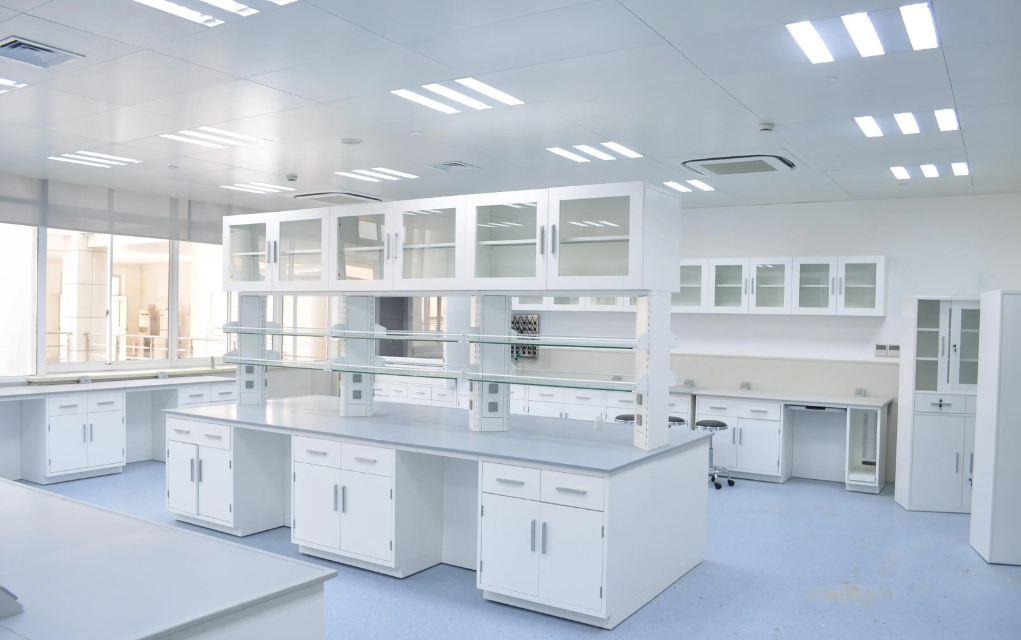What Is a Chemistry Laboratory?
A chemistry laboratory is a specialized facility where scientists, researchers, and students conduct experiments related to chemical substances and reactions. It serves as the foundation for discovering new materials, analyzing compounds, and understanding how chemicals interact.
In both academic and industrial settings, chemistry labs play a key role in research and development, product testing, and quality control.
Chemistry laboratories are typically designed to ensure precision, safety, and efficiency, featuring advanced equipment, fume hoods, ventilation systems, and analytical instruments for a wide range of chemical experiments.

Main Types of Chemistry Laboratories
Depending on their focus, chemistry laboratories can be divided into several types:
- Analytical Chemistry Lab: Focuses on identifying and quantifying chemical components using instruments like spectrophotometers and chromatographs.
- Organic Chemistry Lab: Specializes in synthesis and testing of carbon-based compounds.
- Inorganic Chemistry Lab: Studies non-organic materials such as metals and minerals.
- Physical Chemistry Lab: Examines thermodynamics, kinetics, and molecular behavior.
- Industrial Chemistry Lab: Supports process development and product formulation in manufacturing industries.
Essential Chemistry Laboratory Equipment
A well-equipped chemistry laboratory contains a variety of tools and instruments designed for precision and safety. Common chemistry laboratory equipment includes:
- Glassware: Beakers, flasks, burettes, and pipettes for measuring and mixing solutions.
- Heating Devices: Hot plates, heating mantles, and Bunsen burners.
- Analytical Instruments: Spectrophotometers, chromatographs (GC/HPLC), and pH meters for compound analysis.
- Balancing and Measuring Tools: Analytical balances and volumetric cylinders.
- Safety Devices: Fume hoods, eyewash stations, fire extinguishers, and chemical-resistant gloves.
- Storage Units: Chemical cabinets and refrigerators for safe reagent preservation.
Safety Practices in a Chemistry Laboratory
Safety is the top priority in any chemistry laboratory. Researchers must follow strict protocols to prevent accidents and contamination:
- Always wear personal protective equipment (PPE) such as lab coats and goggles.
- Label all containers clearly with chemical names and hazards.
- Ensure proper ventilation and fume extraction.
- Dispose of chemical waste according to environmental regulations.
- Conduct risk assessments before each experiment.
Applications of Chemistry Laboratories
Chemistry laboratories serve many sectors:
- Pharmaceutical research: Drug discovery and quality control testing.
- Environmental analysis: Water, air, and soil testing for pollutants.
- Food and beverage industry: Ingredient verification and contamination analysis.
- Material science: Development of polymers, nanomaterials, and coatings.
- Education and training: Teaching fundamental chemistry principles and laboratory techniques.
Emerging Trends in Chemistry Laboratories
Modern chemistry laboratories are becoming smarter and more efficient with:
- Automation and robotics for repetitive tasks.
- Digital lab management systems (LIMS) for data tracking.
- Green chemistry practices to reduce waste and environmental impact.
- Miniaturized analytical instruments for portable chemical testing.
Conclusion
A chemistry laboratory is more than just a workspace—it’s the heart of scientific discovery and innovation.
With the right chemistry laboratory equipment, safety systems, and skilled personnel, these labs enable breakthroughs in materials science, healthcare, and environmental protection.
If you are planning to set up or upgrade a chemistry laboratory, contact LabVV or Whatsapp Us for professional laboratory equipment and tailored solutions.
